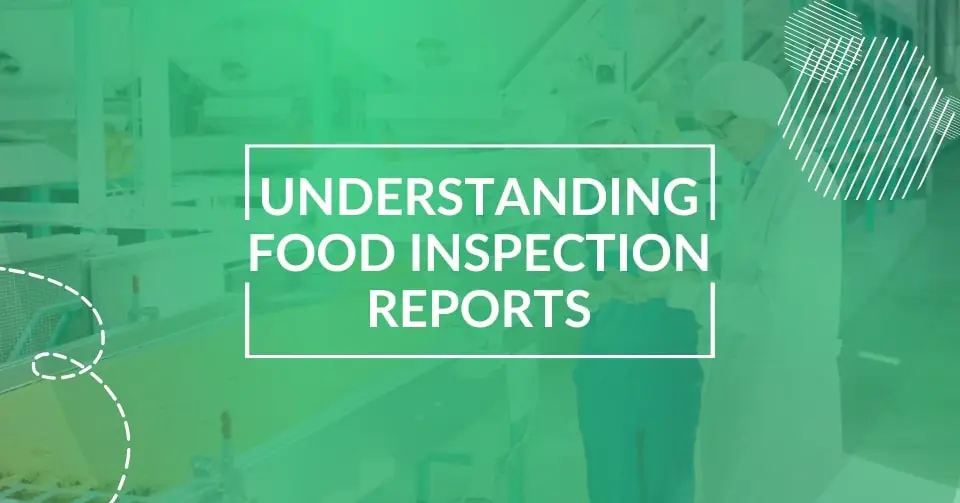In the busy world of food manufacturing, it takes more than just a tasty product to stay ahead. This is where Enterprise Resource Planning (ERP) systems come in handy! ERP is a powerful tool that can really up the game for food businesses, helping them operate, manage, and grow in new ways.
But what exactly is ERP, and why do you need it for your food manufacturing business?
Read on to learn the secrets behind ERP’s impact on food manufacturers, supply chain managers, compliance officers, and quality assurance officers.
Understanding ERP in the Food Industry
Enterprise Resource Planning (ERP) systems are comprehensive software platforms that integrate various business processes into a unified system.
For the food industry, ERP systems combine functions like procurement, production, inventory management, quality control, and distribution into one seamless interface. This integration helps food businesses operate more efficiently and make data-driven decisions.
Optimizing Supply Chain Management with ERP
ERP systems enhance supply chain management by offering real-time visibility across every stage, ensuring smoother operations and better coordination. To fully understand how ERP can optimize your supply chain, consider the following key benefits:
Enhanced Inventory Control
Managing inventory efficiently is one of the most significant challenges in the food industry. ERP systems provide real-time visibility into inventory levels, helping businesses avoid overstocking or stockouts. With accurate data, food manufacturers can plan more effectively, reduce waste, and ensure they always have the necessary ingredients available.
Streamlined Procurement Processes
ERP systems automate procurement processes, making it easier for food manufacturers to manage supplier relationships and negotiate better deals. By centralizing supplier data and automating purchase orders, businesses can reduce manual errors and ensure timely deliveries of raw materials.
Improved Traceability and Compliance
ERP systems offer robust tracking capabilities in an industry where traceability is paramount. From farm to fork, every supply chain step can be monitored and recorded. This transparency not only helps in maintaining compliance with food safety regulations but also builds trust with consumers who demand to know where their food comes from.
Benefits of ERP for the Food Industry
Increased Operational Efficiency
ERP systems streamline various business processes, reducing the need for manual intervention and minimizing errors. This increased efficiency allows food manufacturers to focus on their core competencies, ultimately boosting productivity.
Cost Savings
For 46% of businesses, reducing operational costs is a key goal, making it one of the top three priorities in their ERP strategy, according to a survey by Ultra Consultants.
ERP systems help food businesses save money by optimizing inventory levels, automating procurement, and improving production planning. These cost savings can be reinvested in other business areas, driving growth and innovation.
Promotes Collaboration Across Departments
An excellent benefit of ERP systems is facilitating collaboration among departments within a food manufacturing company. By centralizing information and providing access to real-time data, teams can work together in harmony. For instance, the production, sales, and quality assurance departments can coordinate efforts, share insights, and quickly respond to market changes or production issues, leading to a more cohesive operational strategy.
Scalability and Flexibility
As the food industry evolves so does your business. An ERP system can help your company adapt to the changing market demands and help you expand your operations. ERP systems are designed to be scalable, allowing food manufacturers to easily add new functionalities or accommodate increased production capacity. This flexibility ensures that as businesses grow or shift focus, their systems can grow alongside them without extensive overhauls.
Better Decision Making
With all business data consolidated into a single system, ERP provides valuable insights that support strategic decision-making. Food manufacturers can analyze trends, forecast demand, and identify areas for improvement, leading to more informed and effective business strategies. After all, the absence of ERP data leads to decision-making delays, according to 71% of businesses.
Improved Customer Service
With ERP systems managing critical business processes, food manufacturers can respond to customer inquiries and orders more quickly and efficiently. Access to accurate inventory levels, order histories, and production schedules enables businesses to provide better service and meet customer expectations consistently. This improvement in customer satisfaction can lead to increased loyalty and repeat business.
Upgraded Quality Control
ERP systems play a key role in embedding quality control directly into the heart of production, ensuring that every product meets standards before it leaves the facility. By offering real-time tracking of quality metrics and automating essential reports, food manufacturers can quickly spot potential issues and take action early. This proactive approach not only boosts product quality but also helps lower the risk of food recalls.
Real-World Examples of Successful ERP Implementation
Nestlé’s Transformation
Nestlé, one of the world’s largest food and beverage companies, implemented an ERP system to streamline its global operations. The ERP solution helped Nestlé standardize processes across its numerous subsidiaries, improving efficiency and reducing costs. The real-time data provided by the ERP system also enhanced decision-making capabilities, allowing Nestlé to respond quickly to market changes.
McCormick & Company’s Flavorful Success
McCormick & Company, a leader in the global spice market, turned to ERP to manage its complex supply chain. The ERP system enabled McCormick to optimize inventory management, reduce waste, and ensure product quality. By integrating all aspects of its operations, McCormick achieved greater transparency and improved customer satisfaction.
General Mills’ Efficiency Boost
General Mills, known for its popular brands like Cheerios and Betty Crocker, implemented an ERP system to enhance its supply chain management. The ERP solution provided visibility into every stage of production, from raw material procurement to finished product distribution. This visibility helped General Mills improve forecasting accuracy, reduce lead times, and increase overall efficiency.
Considerations for Selecting an ERP System
Choosing the right ERP system is key for food manufacturers aiming to leverage technology for improved efficiency and growth. Various factors must be considered to ensure the selected system aligns with specific business needs and industry requirements.
Below are key considerations that can guide businesses in making an informed decision when selecting an ERP solution.
Selecting the right ERP system can be a game-changer for food manufacturers seeking improved operational efficiency. By evaluating different food ERP software options, you can find a system that meets specific business needs and industry demands.
Below are key factors to consider when choosing an ERP solution.
Scalability
When you choose an ERP system, you need to consider scalability. Food businesses require a solution that can grow with them, and that will accomodate increased production volumes and expanding operations. An ERP system should be flexible enough to adapt to changing business needs.
Industry-Specific Features
The food industry has unique requirements that must be addressed by the ERP system. Food industry standards require features like batch tracking, quality control, and compliance management. An ERP system designed for food manufacturers will better support your business rather than a general manufacturing ERP system.
User-Friendly Interface
An ERP system is only as good as its usability. An intuitive interface that employees can easily navigate will actually be used. Training and support are also critical factors, as they will determine how quickly your team can adapt to the new system.
Integration Capabilities
The ability to integrate with existing systems and third-party applications is crucial for a seamless transition. An ERP system that can connect with other software solutions will ensure data consistency and improve overall efficiency.
Cost and ROI
Finally, consider the total cost of ownership and potential return on investment (ROI). While ERP systems can be a significant investment, the long-term benefits often outweigh the initial costs. Evaluate the expected ROI to ensure the solution aligns with your business goals.
Conclusion
ERP systems are revolutionizing the food industry by streamlining supply chain management, improving operational efficiency, and supporting better decision-making. From inventory control to compliance management, ERP offers a comprehensive solution for food manufacturers, supply chain managers, compliance officers, and quality assurance officers.
Ready to transform your food business with ERP? Contact our team of experts to learn more about selecting the right ERP system for your needs and start your journey toward a more efficient and competitive operation.
ERP is not just a tool; it’s a strategic asset that can drive success in the fast-paced and complex world of food manufacturing. Don’t wait—embrace the power of ERP today and take your business to new heights.








